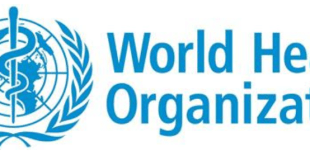Thursday, May 4, 2023
Professor Houssin, members and advisors of the Emergency Committee, dear colleagues and friends,
Good morning, good afternoon and good evening, and thank you all once again for your commitment to the work of this Emergency Committee for more than three years.
In my opening remarks at your last meeting in January, I noted that the number of weekly reported deaths from COVID-19 was declining, following the spike in China after that country lifted restrictions.
It’s very pleasing to see that the downward trend has continued. For each of the past 10 weeks, the number of weekly reported deaths has been the lowest since March 2020.
This sustained trend has allowed life to return to “normal” in most countries, and has increased the capacity of health systems to cope with potential resurgences and the burden of post-COVID-19 condition.
At the same time, some critical uncertainties about the evolution of the virus persist, which make it difficult to predict future transmission dynamics or seasonality.
Surveillance and genetic sequencing have declined significantly around the world, making it more difficult to track known variants and detect new ones.
Inequalities in access to life-saving interventions also continue to put millions of people around the world at unnecessary risk, particularly the most vulnerable.
And pandemic fatigue threatens us all. We are all sick and tired of this pandemic and want to put it behind us.
But this virus is here to stay, and all countries will need to learn to manage it alongside other infectious diseases.
Yesterday, WHO published the fourth COVID-19 Strategic Preparedness and Response Plan, which outlines critical actions across all the core components of the response – collaborative surveillance, community protection, safe and scalable care, access to countermeasures, and emergency coordination.
My colleagues will provide more information on the global situation and the global response.
They will also provide information on the regulatory implications of the potential termination of the PHEIC.
My thanks once again to you, Professor Houssin, for your leadership.
And my thanks to each of the committee members and advisors for sharing your expertise, and for your dedication and commitment.
As always, the International Health Regulations will guide your deliberations.
I look forward to your advice.
 Newspatrolling.com News cum Content Syndication Portal Online
Newspatrolling.com News cum Content Syndication Portal Online





